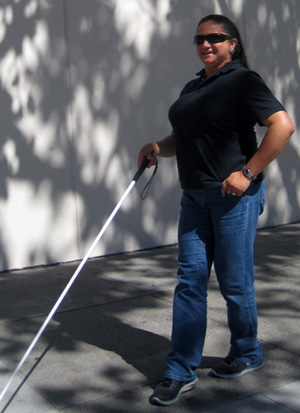
By Bryan Goebel
People with disabilities often rely on BART to get around the Bay Area, especially those who are blind or visually impaired. Another strike next week could make commuting to work, school or a medical provider impossible for some.
Frank Welte rides BART from San Leandro to San Francisco's Civic Center every weekday with the help of his 4-year-old guide dog, Jeep. He’s an information and referral specialist at the Lighthouse for the Blind and Visually Impaired.
His commute is typically an hour and 15 minutes from door to door, but during the recent BART strike things got complicated.
“I cannot just hop in my car and drive somewhere if my bus is gone or my train is gone,” Welte says. “That means that I have to be more creative in finding solutions.”
